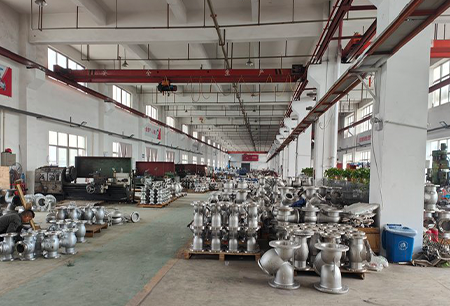electric valve actuators
Understanding Electric Valve Actuators A Comprehensive Overview
Electric valve actuators are essential devices used in various industrial applications, serving as automated mechanisms that control the opening and closing of valves. These actuators play a critical role in various systems, enabling precise control of fluid flow, thereby enhancing operational efficiency and safety. This article delves into the working principles, types, advantages, applications, and maintenance considerations of electric valve actuators.
Working Principles
Electric valve actuators convert electrical energy into mechanical movement to operate valves. Generally, they consist of an electric motor, a gearbox, and a linkage mechanism to the valve. When electrical power is applied, the motor rotates, causing the gearbox to adjust the position of the valve through a series of gears and levers. The actuator can be designed to provide linear or rotary motion depending on the type of valve it controls—linear motion for gate or globe valves and rotary motion for ball or butterfly valves.
Types of Electric Valve Actuators
1. On/Off Electric Actuators These are designed to fully open or close the valve. They are commonly used in applications where flow regulation is not critical.
2. Modulating Electric Actuators These can adjust the valve's position to regulate flow continuously. This feature is essential in processes requiring specific flow rates or pressure control.
3. Fail-Safe Electric Actuators Designed with a default position, these actuators ensure that in case of power loss, the valve will either open or close depending on the design, maintaining system safety and integrity.
Advantages of Electric Valve Actuators
1. Precision Control Electric actuators allow for fine adjustments and tight control over flow rates, improving the accuracy of fluid management systems.
2. Energy Efficiency Compared to pneumatic or hydraulic actuators, electric actuators can be more energy-efficient, especially in applications where power consumption is a crucial consideration.
3. Low Maintenance Electric actuators generally require less maintenance than their pneumatic counterparts, leading to lower operational costs over time.
4. Integration with Control Systems These actuators can be easily integrated into automated control systems, allowing for remote monitoring and operation, which enhances operational efficiency.
5. Environmental Benefits Electric actuators do not produce emissions during operation, making them a more environmentally friendly option for controlling valves.
electric valve actuators

Applications
Electric valve actuators find applications across numerous industries, including
- Water Treatment They regulate water flow in treatment plants, ensuring proper filtration and chemical dosing. - Oil and Gas These actuators control the flow of crude oil, natural gas, and refined products, ensuring safe and efficient operation. - HVAC Systems In heating, ventilation, and air conditioning systems, they manage the flow of air and fluids, enhancing overall energy efficiency. - Chemical Processing They handle the accurate flow of various chemicals, critical for maintaining product quality and safety.
- Power Generation Electric valve actuators are used in power plants to control steam and water flow, ensuring optimal energy production.
Maintenance Considerations
To ensure the reliable performance of electric valve actuators, maintenance is crucial. Here are some best practices
1. Regular Inspections Routine checks can help identify any signs of wear or malfunction before they lead to larger issues.
2. Lubrication Ensure that the moving parts are properly lubricated to reduce friction and increase lifespan.
3. Electrical System Checks Regularly inspect the electrical connections and control systems to ensure they are functioning correctly.
4. Calibration Periodic calibration may be necessary to maintain the accuracy of the actuator in regulating flow.
5. Environmental Considerations Ensure the actuators are suitable for their operating environment to prevent damage from extreme temperatures or corrosive materials.
Conclusion
Electric valve actuators are instrumental in modern industrial processes, providing efficient, precise, and environmentally friendly control over fluid dynamics. Their various types and functionalities allow them to cater to a wide array of applications, making them indispensable in numerous fields. Appropriate maintenance and understanding of their operation further enhance their reliability, ensuring safe and efficient systems in today’s demanding industrial landscape. As technology continues to evolve, the capabilities and applications of electric valve actuators are expected to expand, driving innovation in automation and process control.
-
3-types-of-check-valves-maintenance-tipsNewsAug.23,2025
-
ball-valves-types-with-trunnion-mounted-designNewsAug.23,2025
-
butterfly-valve-company-production-capabilitiesNewsAug.23,2025
-
fisher-globe-valve-technical-specificationsNewsAug.23,2025
-
types-of-gaskets-for-flanges-selection-guideNewsAug.23,2025
-
wedge-gate-valve-suppliers-quality-standardsNewsAug.23,2025
-
Breakthrough in Domestic Low Temperature Valve Technology in ChinaNewsAug.18,2025




